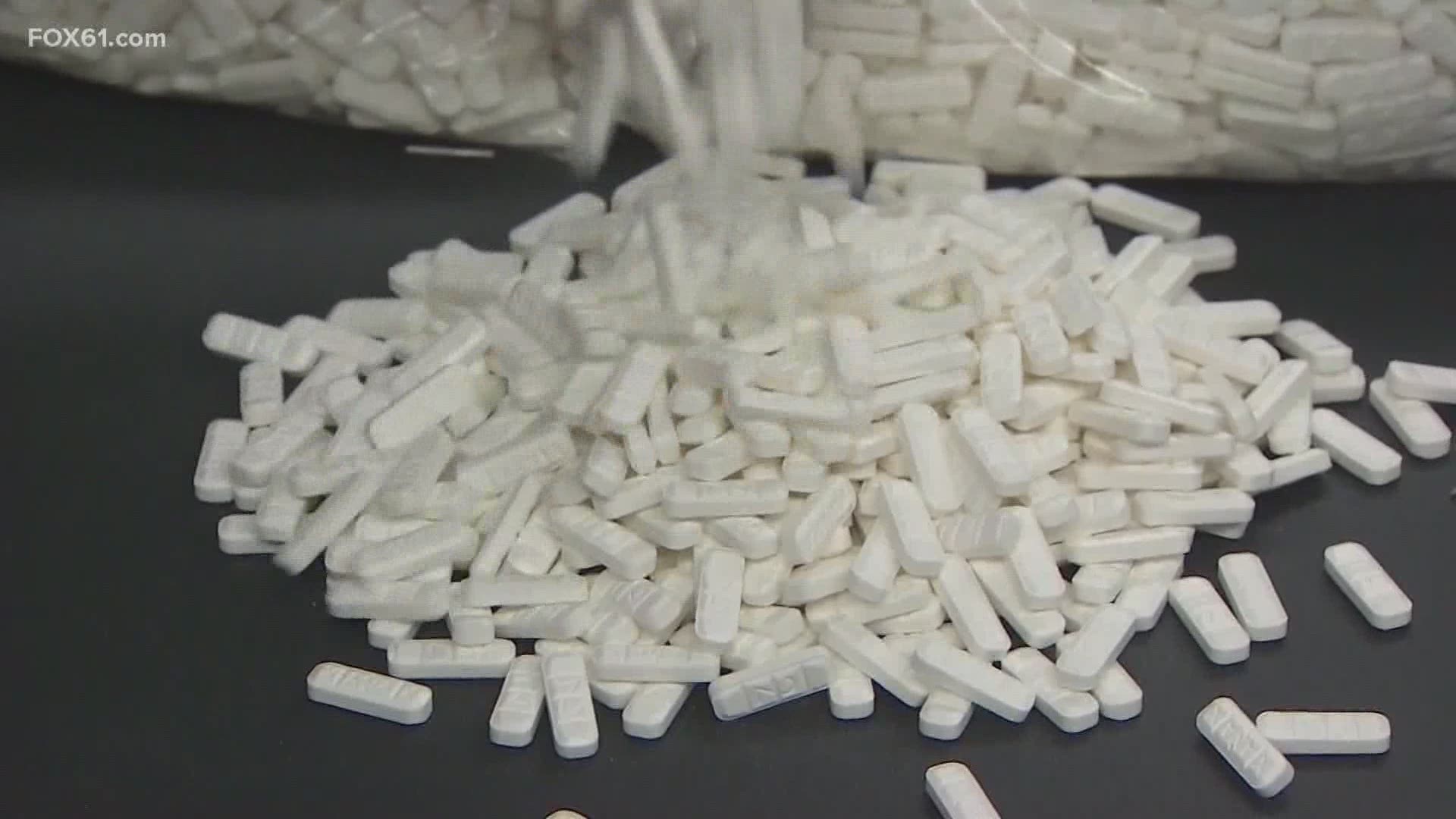HARTFORD, Conn — Opioid related deaths have jumped in recent years— 18% from 2018 to 2019 and now 22% from 2019 to 2020.
While it’s too early to say whether the pandemic is causing a rise in opioid deaths, it’s something people in the state are keeping an eye on.
"What we’re seeing is two parallel health crises," says Senator Richard Blumenthal. "One a virus; the other substance abuse. They are intertwined."
The Hartford Police Department is seeing it too.
"Make no mistake about it. There’s a lot of depression going on right now. They’re out of work. They’re home. They’re quarantined and a lot of people who were drug dependent or currently drug dependent at the time they revert back to what they’re comfortable with," says Hartford Police Lieutenant Paul Cicero.
They are seeing a rising trend in the habits of people addicted to opioids.
"People that do engage in utilization of opioids are doing it alone now," says Cicero. "Prior they were doing it together with other people. Now, people are quarantined and away from each other. That may be something we need to look at potentially in the future."
When people do drugs alone, they are less likely to be able to call for help or have someone administer narcan if they overdose. This, combined with the emergence of carfentanil in Connecticut, could account for a rise in deaths.
"Synthetic opioid analogs continue to be the number one issue we have here in Connecticut," says Robert Lawlor, a drug intelligence officer at New England HIDTA. "Each year the number of deaths we attribute to synthetic opioid keeps on increasing and our public health and public safety heroes on the frontline are working diligently to try and stem the tide of fatal overdoses here in Connecticut."
The state is on trend to surpass last year's 1,200 deaths. Hartford's year to date deaths for overdoses are at 81, almost double where they were at this time in 2017.
"We’re preparing for what could be second wave in the fall and we really need resources to do a better job," says Hartford Director of Health, Liany Arroyo. "to do a job that is more proactive than reactive, so we can make sure we’re taking care of everyone in our community because everyone’s life is precious no matter where you’re at in life."

